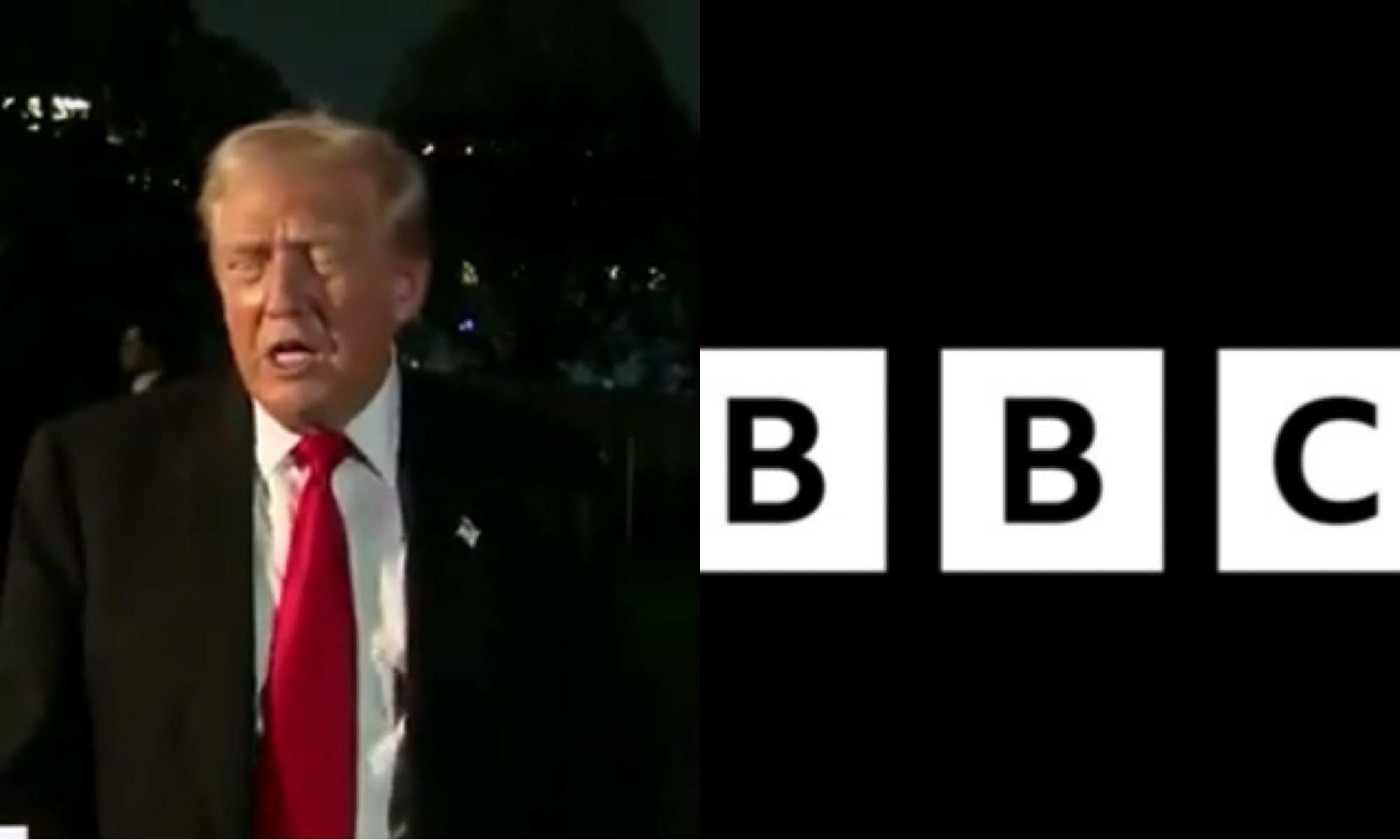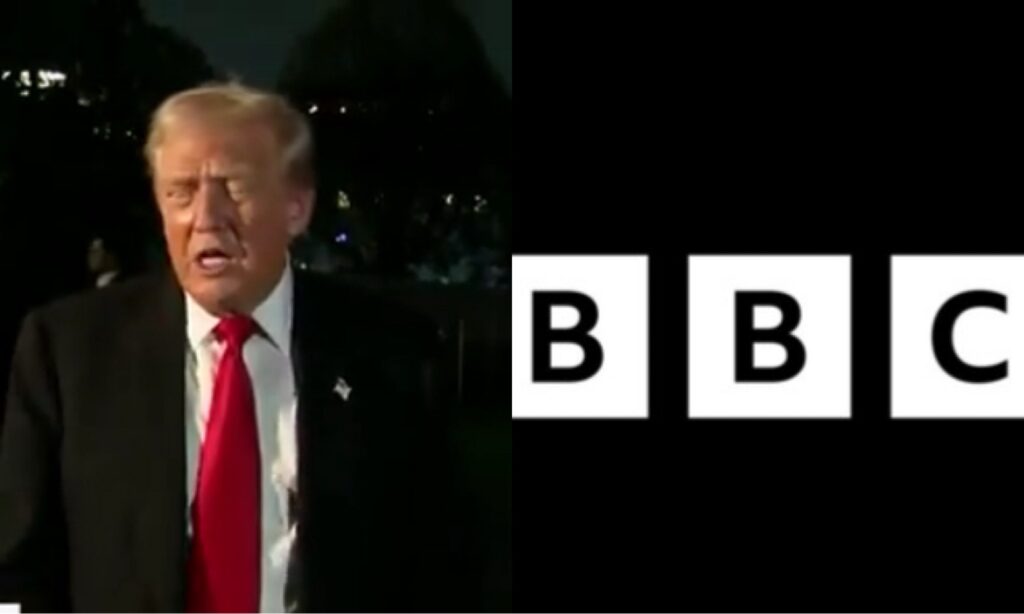NFL
Donald Trump Officially Files $1 Billion Lawsuit Against BBC, Accusing Network of Defamation and Deliberately Misleading the Public With Edited Jan. 6 Footage

London / Washington, 10 November 2025 — Donald Trump, the U.S. President, has officially threatened legal action against BBC, demanding $1 billion in damages for alleged defamation and election-interference caused by a televised documentary.
The Allegation
The friction centres on an episode of the BBC’s flagship current-affairs programme Panorama titled “Trump: A Second Chance?”, which aired shortly before the 2024 U.S. presidential election. According to Trump’s filing and supporting commentary:

The documentary edited together two separate parts of Trump’s speech from 6 January 2021 — remarks made nearly an hour apart — creating the impression he was explicitly inciting his supporters to march on the Capitol and engage in violence. Key portions in which Trump had called for peaceful protest were omitted, in what Trump’s legal team describes as a deliberate distortion of his words. A legal letter from Trump’s attorney, Alejandro Brito, demands a full retraction, apology and compensation, warning the BBC that if these actions are not taken by 5:00 p.m. EST, 14 November 2025, a lawsuit for “no less than One Billion Dollars” will be filed.
BB C’s Response & Fallout
In response to mounting pressure:
BBC Chair Samir Shah publicly acknowledged the editing was an “error of judgment” that “did give the impression of a direct call for violent action.” The broadcaster announced it would review the legal letter and “respond directly in due course.” The situation has already triggered significant leadership changes: Director-General Tim Davie and News Chief Deborah Turness resigned amid the controversy. An internal memo authored by former BBC standards adviser Michael Prescott added fuel to the fire, alleging systemic bias in the BBC’s coverage of Trump, Gaza and transgender issues.
Why It Matters
Media Credibility: As the UK’s publicly funded broadcaster, the BBC holds a central role in global journalism. Claims of manipulated content strike at the heart of its impartiality and trust. Election Integrity: The editing in question relates to coverage of one of the most polarising moments in U.S. history — the 6 January 2021 Capitol attack — thereby entangling media ethics with democratic accountability. Legal Precedent: A $1 billion claim by a former head-of-state against a public broadcaster in another country is exceptionally rare and could reshape libel/defamation norms across borders. Institutional Repercussions: The resignations at the BBC and investigations into editorial procedures underscore a broader reckoning at legacy media institutions under political pressure.
Possible Scenarios Moving Forward
Settlement: The BBC may negotiate a settlement to avoid a protracted international lawsuit, perhaps issuing a public retraction or correction while agreeing to damages. Court Battle: If no agreement is reached, Trump’s legal team may file in a U.S. jurisdiction under Florida law (as referenced in his letter) and the case could become a prolonged, high-stakes legal contest. Reform at the BBC: Regardless of legal outcome, the broadcaster is likely to implement major editorial reforms, restructure oversight and renew efforts to shore up public-service credibility. Political Fallout: In the UK, the controversy may provoke parliamentary scrutiny of the BBC’s funding model, its governance and its journalistic independence, especially amid charter renewal discussions through 2027.
Quotes & Reaction
Trump: “The BBC defamed President Trump by intentionally and deceitfully editing its documentary … President Trump will continue to hold accountable those who traffic in lies, deception, and fake news.” Shah: “The BBC would like to apologise for that error of judgment… It is absolutely clear the BBC must champion impartiality.” UK Government (via spokesperson): “Clearly mistakes have been made… but we support a strong, independent BBC.”
Implications for Nigeria & Africa
While the story centers on U.S.-UK affairs, there are broader implications for audiences and broadcasters in Nigeria and across Africa:
Public trust in media is globally challenged when major outlets appear to mishandle content. International media controversies can influence perceptions of Nigerian media ethics and governance. The case underscores the importance of transparency in editorial decisions — a relevant lesson for Nigerian broadcasters and regulators.
Bottom line: This is more than just a legal threat. It’s a full-blown crisis for one of the world’s most respected broadcasters and a major test for how media, politics and democracy intersect. I’ll continue monitoring for updates — if you like, I can check and summarise the legal filings and anticipated timeline for the case.











